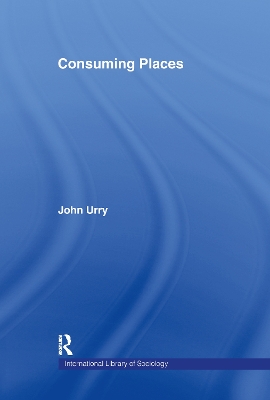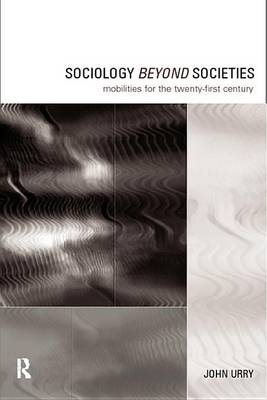International Library of Sociology
3 total works
John Urry has been discussing and writing on these and similar questions for the past fifteen years. In Consuming Places, he gathers together his most significant contributions. Urry begins with an extensive review of the connections between society, time and space. The concept of 'society', the nature of 'locality', the significance of 'economic restructuring', and the concept of the 'rural', are examined in relationship to place. The book then considers how places have been transformed by the development of service occupations and industries. Concepts of the service class and post-industrialism are theoretically and empirically discussed. Attention is then devoted to the ways in which places are consumed. Particular attention is devoted to the visual character of such consumption and its implications for place and people. The implications for nature and the environment are also explored in depth. The changing nature of consumption, and the tensions between commodification and collective enthusiasms, are explored in the context of the changing ways in which the countryside is consumed.
How should we understand the personal and social impacts of complex mobility systems? Can lifestyles based around intensive travel, transport and tourism be maintained in the 21st century? What possibility post-carbon lifestyles?
In this provocative study of "life on the move", Anthony Elliott and John Urry explore how complex mobility systems are transforming everyday, ordinary lives. The authors develop their arguments through an analysis of various sectors of mobile lives: networks, new digital technologies, consumerism, the lifestyles of `globals', and intimate relationships at-a-distance. Elliott and Urry introduce a range of new concepts - miniaturized mobilities, affect storage, network capital, meetingness, neighbourhood lives, portable personhood, ambient place, globals - to capture the specific ways in which mobility systems intersect with mobile lives.
This book represents a novel approach in "post-carbon" social theory. It will be essential reading for advanced undergraduate students, postgraduates and teachers in sociology, social theory, politics, geography, international relations, cultural studies, and economics and business studies.
In this ground-breaking contribution to social theory, John Urry argues that the traditional basis of sociology - the study of society - is outmoded in an increasingly borderless world. If sociology is to make a pertinent contribution to the post societal era it must forget the social rigidities of the pre-global order and, instead, switch its focus to the study of both physical and virtual movement. In considering this sociology of mobilities, the book concerns itself with the travels of people, ideas, images, messages, waste products and money across international borders, and the implications these mobilities have to our experiences of time, space, dwelling and citizenship.
Sociology Beyond Society extends recent debate about globalisation both by providing an analysis of how mobilities reconstitute social life in uneven and complex ways, and by arguing for the significance of objects, senses, and time and space in the theorising of contemporary life.
This book will be essential reading for undergraduates and graduates studying sociology and cultural geography.


